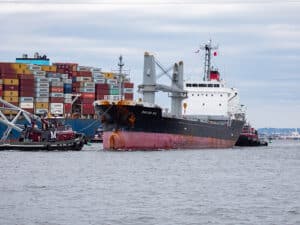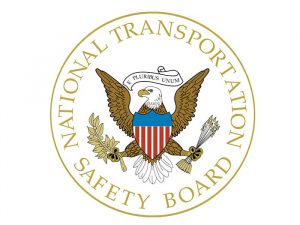
White House puts container shipping alliances in its crosshairs
Written by Nick Blenkey
In its latest briefing on the port congestion issue and its impact on the supply chain, the White House notes good progress in shifting import cargoes through the ports of Los Angeles and Long Beach. However, it notes problems with moving U.S. exports, in particular containerized exports. It also sends a clear signal that the nine carriers and three alliances that dominate the global container shipping market are going to face increasing U.S. scrutiny—and could lose their antitrust immunity.
“The rise in cost of shipping between Asia and the West Coast has meant that it is more profitable for the ocean carriers to quickly load empty containers or return without a full ship instead of waiting for loaded containers to get into the port,” notes the briefing. “The share of exported containers at [Los Angeles and Long Beach] that are empty has risen from around 55% in the five years preceding the pandemic to over 70 % so far this year.”
This, says the briefing, raises questions about the fair treatment of American exporters and importers in the shipping industry. It notes that the three global alliances control about 80 percent of the global shipping market and 95 percent on the critical East-West trade lanes. Alliances only controlled 29% of the market as recently as 2011.
“This lack of competition leaves American businesses at the mercy of just three alliances,” says the briefing. Retailers are charged fees for their container remaining on the docks, even if there is no way to move their containers. If the alliances decide to not accept exports, agricultural exporters will not be able to fulfill their contracts, and farmers’ perishable products may be left to rot.”
ANTITRUST IMMUNITY AT RISK
The briefing says that the Federal Maritime Commission should use all of the tools at its disposal to ensure free and fair competition. It notes that while the alliances between the carriers receive statutory immunity from antitrust laws, “the FMC can challenge those agreements if they ‘produce an unreasonable reduction in transportation service or an unreasonable increase in transportation cost or … substantially lessen competition.’ The Justice Department stands ready to lend the FMC its expertise and support. In fact, the two agencies have already increased their collaboration, which is part of the ‘whole of government’ approach to promoting competition launched by the Executive Order on Competition.”
“Congress should take action here as well,” continues the briefing. “The FMC needs more resources to oversee an industry with the size and scope of global shipping. Its annual budget is just around $30 million. Current laws also do not require even basic transparency in this sector. For example, there is no public reporting of the detention and demurrage fees carriers are charging their customers. Moreover, Congress should provide the FMC an updated toolbox to protect exporters, importers, and consumers from unfair practices. There is bipartisan support for doing this, including a bipartisan bill sponsored by California Democrat John Garamendi and South Dakota Republican Dusty Johnson. Their proposed legislation includes good first steps towards the type of longer-term reform to shipping laws that would strengthen America’s global competitiveness.
“We look forward to working with members of both parties in Congress to ensure that we have a system of maritime regulation that boosts instead of reduces American competitiveness for both importers and exporters. That would complement the bipartisan infrastructure deal that the President signed into law this week, which is one step in the president’s broader strategy to build a more durable industrial strategy that will bolster America’s global economic competitiveness. Reforms to our shipping laws would help further improve our ability to get goods in and out of this country more quickly and cost effectively, and strengthen opportunities for U.S. businesses to connect with global markets.”




